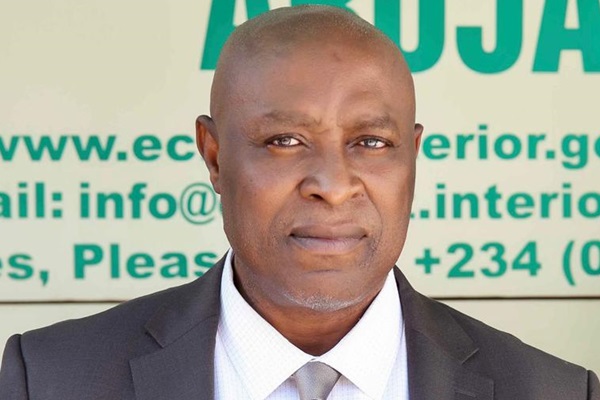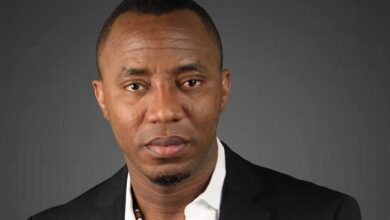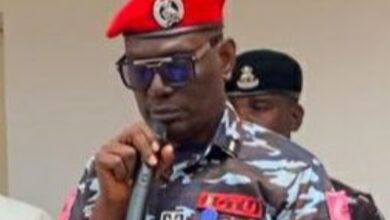From Cattle In The Streets To Global Pretensions: Nigeria’s Illusory Quest For A United Nations Security Council Seat

A Dream Beyond Reach?
Nigeria’s political elite have recently flirted with the idea of securing a permanent seat on the United Nations Security Council (UNSC). On its face, such ambition ought to stir national pride. Yet, the proposition invites more derision than admiration.
It is the equivalent of a pauper announcing plans to host a royal banquet when he cannot afford to light a single candle in his hut. Lofty ambition without the foundation of capacity is not statesmanship but tragicomic illusion.
The Unraveling Fabric of Governance
A nation where cattle freely roam the boulevards of its federal capital, Abuja, reveals in stark symbolism the erosion of state order. This spectacle is not a rural oddity but an indictment of weak institutions.
Persistent power outages, collapsing infrastructure, and dysfunctional public transport underscore a government unable to provide the most basic amenities.
Expecting Nigeria in this condition to shoulder global security responsibilities is akin to asking a patient suffering from sepsis to perform open-heart surgery on others.
Insecurity: The Hydra-Headed Menace
At the heart of Nigeria’s dysfunction lies insecurity. From Boko Haram’s insurgency in the northeast, to banditry in the northwest, and the scourge of kidnapping that has spread nationwide, Nigeria is a state perpetually under siege.
The government struggles to protect its own citizens, let alone contribute meaningfully to global peacekeeping. To borrow an analogy, a firefighter whose home is consumed by flames is ill-positioned to extinguish infernos abroad.
Diplomatic Vacuum and Global Irrelevance
Compounding these failures is Nigeria’s startling diplomatic absence. In recent years, embassies and high commissions have operated without substantive ambassadors in key global capitals.
This dereliction deprives Nigeria of the very instruments necessary to engage international partners, negotiate trade agreements, and protect its diaspora.
Without a robust diplomatic presence, Nigeria is like a merchant who closes his shop yet expects to dominate the marketplace.
The consequences are severe:
a) Dwindling foreign direct investment
b) Missed opportunities for cultural diplomacy
c) Poor protection of citizens abroad
d) Shrinking influence in multilateral negotiations.
Nigeria’s Forgotten Legacy in Peacekeeping
Ironically, Nigeria once carried genuine weight in global peace and security. In the 1990s, Nigeria led decisive interventions in Liberia and Sierra Leone under the auspices of ECOMOG, committing troops, resources, and political capital to restore stability in West Africa.
Nigerian soldiers stood on the frontlines of conflict zones where Western powers hesitated to tread.
Nigeria also played visible roles in Darfur, Sudan, and contributed to UN missions in Congo (DRC), Mali, and Somalia. These efforts earned Nigeria a reputation as Africa’s policeman and a reliable partner in international peacekeeping.
But today, that legacy is a fading memory. Decades of corruption, mismanagement, and underinvestment in the armed forces have eroded Nigeria’s capacity.
The same military that once commanded respect abroad now struggles to contain ragtag insurgents at home. A country unable to secure the Abuja-Kaduna expressway can hardly pretend readiness to secure the world.
Comparative Analysis: Nigeria and Current UNSC Members
To understand the hollowness of Nigeria’s ambition, one must contrast it with current Security Council heavyweights.
United States: Possesses the world’s largest economy, unparalleled military strength, and an expansive diplomatic corps.
China: The world’s second-largest economy, an ascendant global power with deep investments across continents.
Russia: Despite economic headwinds, it remains a nuclear superpower and a decisive player in global energy and security politics.
United Kingdom and France: Nuclear powers with advanced economies, historical networks of influence, and global diplomatic reach.
Nigeria: Once a regional stabilizer, now a nation whose GDP per capita is among the lowest in the middle-income bracket, with an overstretched military battling internal insurgencies and an underfunded, often rudderless diplomatic corps.
The disparity is glaring. Nigeria’s current condition makes its UNSC aspiration akin to a street vendor insisting on a seat among billionaires at Davos while still begging for daily sustenance.
The Imperative of Self-Correction
Before Nigeria can credibly aspire to global leadership, it must undertake a radical program of self-repair. This involves:
1. Rebuilding Governance: Strengthening institutions, enforcing the rule of law, and investing in infrastructure.
2. Taming Insecurity: Equipping security forces, addressing root causes of conflict, and ensuring citizens’ safety.
3. Reviving Diplomacy: Filling ambassadorial positions with competent professionals, properly funding embassies, and projecting Nigeria’s interests with consistency.
4. Economic Revitalization: Stabilizing power supply, boosting industrialization, and building human capital to match rhetoric with reality.
As the age-old admonition counsels, “Physician, heal thyself.” Nigeria must first put its domestic house in order before presuming to sit among the arbiters of global peace and security.
The Cost of Misplaced Ambition
The pursuit of a UNSC seat is not merely unrealistic, it is fiscally reckless. Mounting such a campaign requires enormous financial and human capital.
For a nation unable to fund its universities, hospitals, and infrastructure, channeling scarce resources into a doomed global adventure is wasteful. It is like erecting a glass skyscraper on quicksand: dazzling to the eye, yet destined to collapse.
Conclusion: Rivers Do Not Rise Above Their Source
Nigeria’s quest for UNSC membership, in its present state, and reliance on its questionable population, is not visionary,it is misplaced priority. The country cannot rise above the quality of its governance, nor can it claim global leadership while its citizens languish in insecurity and poverty.
As Chinua Achebe once warned, Nigeria has yet to even imagine the greatness within its grasp. The task before its leaders is not to chase premature global prestige, but to craft a coherent national vision, heal domestic wounds, and build a credible state.
Only then can Nigeria’s voice carry weight at the world’s highest tables, but also as a rightful and respected participant.
Charles Ude, Esq. is an Abuja-based Legal Practitioner and Public Commentator; Email: charlesude2014@gmail.com.
Post Views: 9





